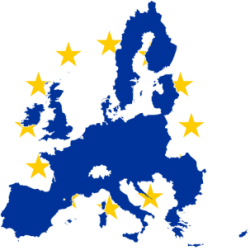iPoker Legislation Slow Moving in Portugal, Holland and Slovenia

As of July 1, PokerStars is no longer operating in Slovenia, joining other major poker providers in exiting the country. The world’s most well-known poker brand also ceased operations in Portugal last year and stopped advertising their site in the Netherlands two summers ago. All three of these moves were in reaction to national online poker laws that require operators who do not hold licenses to stop operating and advertising until they can obtain the proper credentials.
Let’s take a look at the state of poker in each of the three countries:
Portugal
In April 2015, Portugal introduced the final changes to their gaming laws, mandating that all poker operators who were unlicensed stop operating immediately. Although there were plans to begin licensing operators right away, the need for EU approval for some elements of the law delayed the process. Although sports betting licenses began to be issued in May 2016, online poker licensing continues to be stymied by debates over what technical requirements will be needed to offer liquidity sharing with international partners. Furthermore, once agreed the Portuguese regulator Regulação e Inspeção de Jogos (SRIJ) will need to submit its liquidity sharing proposals to the European Commission, after which other EU countries will be granted a three month period to express their views on the matter. As a result, any liquidity sharing service would only become available in November at the earliest.
It was also revealed that operators must wait 18 months from the time that they left the market before they can qualify for licensing, meaning that PokerStars will likely be unable to re-enter the Portuguese market until the final quarter of this year.
The Netherlands
Beginning in the summer of 2016, Dutch gaming regulations have prevented operators from advertising online poker, which even prevented Dutch pro player Jorryt Van Hoof from being able to accept a sponsorship from 888 Poker. The stay of advertising was meant to be a temporary measure until new iGaming legislation could be passed, but the process has been much slower than expected due to controversy surrounding the breakup of the Holland Casino gaming monopoly, and a very high rate of taxation on gross gaming revenues (29 percent). Although there has been a lot of debate over the 26 amendments that have been made to Dutch laws, industry insiders are optimistic that the bill will pass sometime in 2016, and as a report from GaminginHolland stated recently:
“Last night, it became clear that opposition parties D66 and PVV are “in principle” willing to support the bill in the Lower House. If – as is normally expected – these groups will also support the bill in the Senate, the draft law will end up with a clear majority in that body as well.”
Slovenia
Although Slovenia has a population of only 2 million, the country has a strong gross domestic product per capita of $21,307, making it an attractive market for online poker operators. The government hopes that their new iGaming regulatory commission will be ready to work by the end of 2016 and that sites that have been required to go offline will be able to be licensed and up and running either by the end of 2016, or during the first three months of 2017. Regarding the situation, PokerStars sent an optimistic message to its players, stating:
“We hope that we will be able to return to the market in due course, and will continue to support the implementation of fair and consistent regulation that serves the needs of all stakeholders and includes a strong commitment to consumer protection, particularly of vulnerable people, in Slovenia.”
Conclusion
While the licensing issues in Portugal, Slovenia and the Netherlands are making it difficult for operators wanting to comply with the laws to get their sites up and running, illegal operators are profiting more than ever before, as they remain the only way for poker lovers to play the game they enjoy. It seems that for the short-term, national legislation is helping rather than hurting the illegal poker market.










